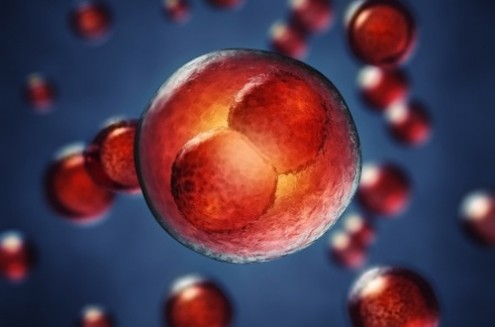Recently, celebrities Sofia Vergara and Nick Loeb have given attention to a relatively non-discussed topic: frozen embryos and what happens to them if they aren't being used.
Currently, there are more than 600,000 frozen embryos in storage in the U.S. Long before Sofia and Nick, though, there were families all across the U.S. who had struggled with infertility and who had talked about the unique opportunity that frozen and stored embryos present.
When couples undergo IVF (in vitro fertilization), oftentimes there are more embryos created than the couple wants to use. That creates a surplus of embryos and a dilemma of what to do with those remaining embryos once a family has decided its circle is complete.
Thanks to modern medicine and some families with big hearts, other couples who struggle with infertility problems can now adopt those remaining and stored embryos created by other couples.
This means a woman would have the option to carry and give birth to her adopted child. What was initially a dilemma for some has turned out to be an opportunity and miracle for others.
What options are available to the person who has remaining embryos and doesn't plan to use them?
Director of the Nightlight Embryo Adoption Awareness Center, Kimberly Tyson, shares why couples might decide to freeze eggs, as well as what happens to all the frozen embryos that are unused.
Frozen Embryos: What Happens if You Don't Use them All?
What options are available to the person who has remaining embryos and doesn't plan to use them?
Additional Info
- Segment Number: 4
- Audio File: health_radio/1526ml3d.mp3
- Featured Speaker: Kimberly Tyson, Director of the Nightlight Embryo Adoption Awareness Center
- Organization: Nightlight Embryo Adoption
-
Guest Bio:
 Kimberly Tyson has more than 25 years of marketing and leadership experience developing and deploying leading edge technology products and services for top-tier companies.
Kimberly Tyson has more than 25 years of marketing and leadership experience developing and deploying leading edge technology products and services for top-tier companies.
An accomplished corporate marketer, her vision and expertise in business performance have brought goal-oriented success in the medical, education and general business sectors.
She received her BA from Colorado State University in Business Administration-Marketing with a minor in Political Science.
As the Director of the Nightlight Embryo Adoption Awareness Center, she has developed educational training and videos, created Internet strategies to increase website traffic, launched a legal essay competition and established regular communications with Adoption Agencies and Fertility Clinics, OB/GYNs, donors and adopters throughout the U.S. Kimberly is also responsible for marketing and promotion of the many Nightlight adoption programs and services. - Length (mins): 10
- Waiver Received: No
- Host: Melanie Cole, MS
Published in
Health Radio
Tagged under
